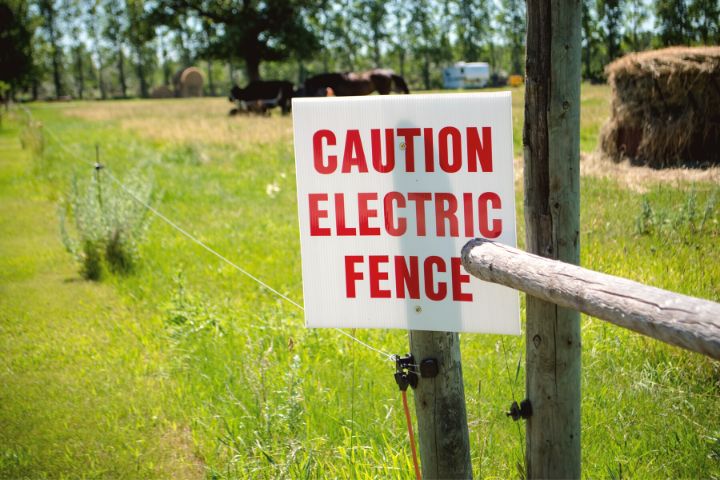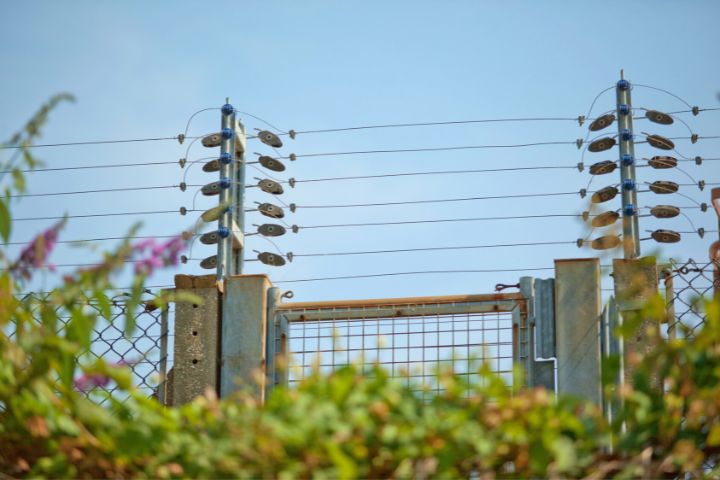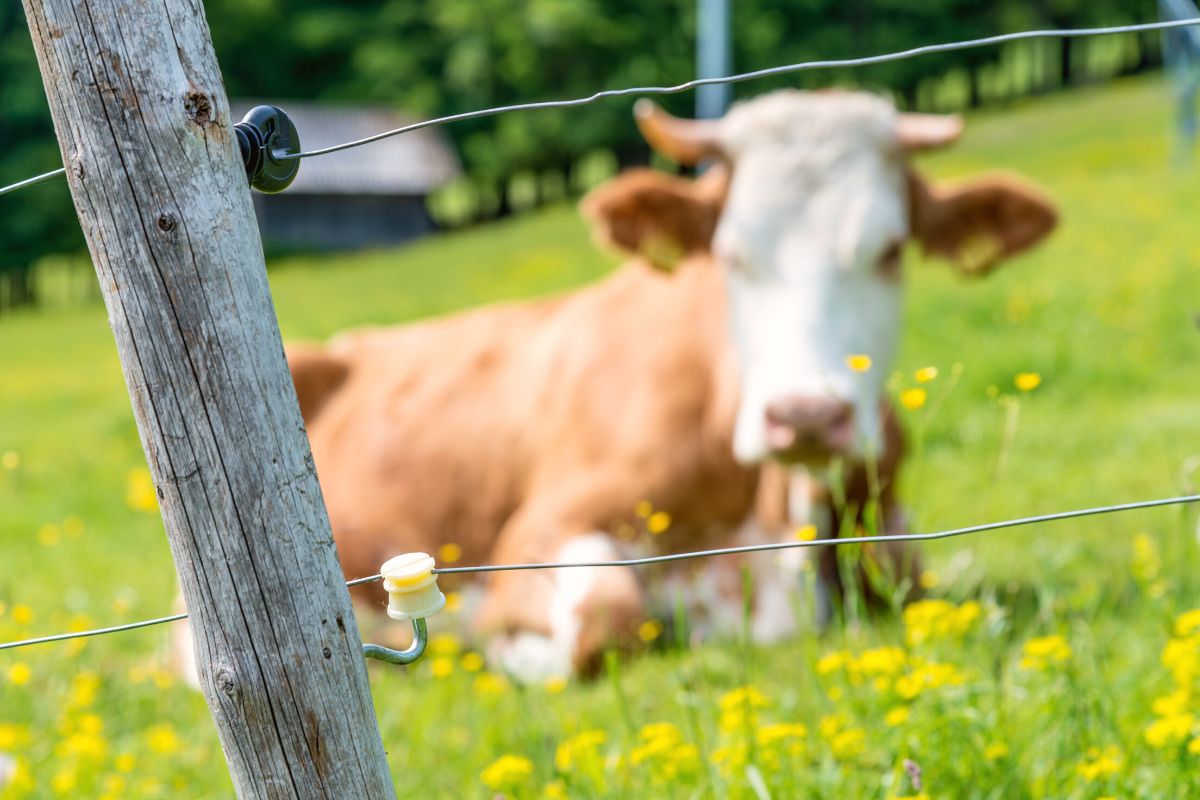How Does an Electric Fence Work
Let’s face it. If you have livestock, you need a good farm fence!
It’s not uncommon for a farm animal to try and escape its enclosure. From small animals like goats to large animals like cows and horses, a naughty one will either dig underneath or make a hole through the fence and eventually make its escape.
It’s impossible to constantly keep an eye on every animal round the clock, so electric fences have added another layer of protection. The idea is not to set the fence to be so powerful that it hurts the animal, rather the concept is that the animal experiences a little shock to deter it from trying again in the future. It is a psychological deterrent as opposed to physical punishment.
Related Topics: Farm Equipment Finance and Livestock Finance
How Does an Electric Fence Work?
Electric fences can be powered by either battery or mains and use an energizing unit to convert the power into high-voltage surges. If an animal comes in contact with a wire a current will be sent through the animal down to the ground, where it will finish, shocking the animal in the process.
There are 4 essential components needed to make an electric fence:
- Energiser – this can be in the form of a battery, connected to the mains, or a combination of both
- Conducting wire – a few rows of this wire are what will act as the barrier for the animals so it is necessary for it to be a conductor of electricity.
- Insulation – the wire must be insulated well so that the power remains confined and doesn’t leak into the ground which can be dangerous
- Earth electrode – creates a diversion for the current to safely return back to the energiser.
What Type of Electric Fences Are There?
There are three main types of electric fences and which one is right for you depends on your needs.
Permanent Electric Fencing

When installing permanent electric fencing, quality and long-term planning are key. The posts you purchase should be of good quality, particularly the corner posts. It is important to use good insulators and it’s recommended to use 2.5 mm high tensile wire which is known for its durability and conductivity. We also suggest you ensure the installation is done by professionals to avoid issues down the line.
Semi-permanent fences
These can last up to 2 years and are most suitable to contain farm animals and crops which can attract rodents. Wooden posts are a good choice as they are solid in construction but can still be moved and transported fairly easily. Using a mains power supply is most convenient however if that is not possible then 12-volt batteries are a good choice as they are powerful yet portable.
Temporary Electric Fencing
When only needed for a short period of time, or if needed in multiple locations then temporary fencing is for you. They are lightweight and are most often battery-powered or even solar-powered. The posts are a combination of steel and plastic and lightweight wires such as poly rope, poly wire or nets are most often used.
What Are Electric Fences Suitable for?
Electric fences are most suitable for farmers with cattle such as pigs, sheep, horses, cows, goats and poultry as the animals will learn over time and experience which boundaries they should not cross. Alternatively, they are also suitable for keeping unwanted animals and predators out, keeping your animals and crops safe.
Electric fences are also used by governments to mark off military zones and land they don’t want anyone to trespass on. Prisons also employ electric fences to prevent inmate escapes. However, these types of electric fences have much high voltage and can be lethal to come in contact with.

Advantages of Electric Fences
Electric fences can come with a number of advantages. For instance, as well as training your animals not to try and go beyond the laid-out parameter, can also be a strong deterrent for trespassers and vandals. You are required, by law, to have signs displaying the fence being of an electric nature. As no one knows exactly how strong (or weak) the current is, not many are willing to take the risk of finding out.
Electric fences are also quite durable and can last for a number of years. They are also relatively easy to install – usually, a day’s work unless it’s a large area – and can be removed just as easily. In addition, another big advantage is the relatively low cost when compared to other fencing alternatives.
Disadvantages of Electric Fences
There are also a few disadvantages of electric fences. As their functionality is solely dependent on a power source, it’s not always easy to have one where you need it, especially considering a lot of fences are needed in rural areas. Depending on how strong the power grid is in the area, power outages can also become an issue, leading to the fence losing its purpose.
Electric fences also need regular maintenance, as damaged or broken insulators can spread the current into the earth damaging the affected area.
How much do Electric Fences Cost
How much an electric fence will set you back will come down to a few factors such as how much fence you need, what type of electric fence you go for, how many wires you want to be installed in between posts and the size of the land you need covering.
Typically you are charged by the meter and the great thing about electric fences is how cost-effective they can be. The price of the wire, posts and installation should only cost you in the range of $2 to $5 per meter.
This is significantly different when compared to alternative fencing options such as wood post and rail or chain link fences which can cost over $50 per meter!

FAQ’s
Can electric fences be dangerous in the rain?
We have always been told that the mix of electricity and water can be lethal, however, electric fence wires are very well insulated and are designed to function without issue during normal rainfall. However, it is recommended to ask experts on installation the specifics of the electric fence you have chosen.
What happens if I touch an electric fence?
Electric farm fences are purposefully kept quite low in power and voltage as they are designed to warn the animals and not hurt them. Similarly, if you touch the fence by accident you will experience nothing more than a small shock.
Having said that, it’s not advisable to touch an electric fence and you should avoid contact at all costs, especially if there are warning signs displaying ‘high voltage’ as these could be dangerous.

